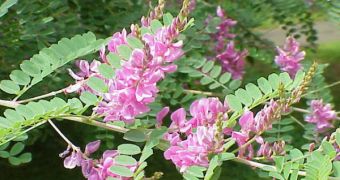Traditional Chinese medicine has been using indigo plant extracts to cure psoriasis for millennia now, while Western medicine still relies on corticosteroids for the job. But now, a newly-devised ointment, obtained from the leaves of the plant, showed great promise in reducing the scales and rashes caused by even the most severe cases of the terrible skin disease.
Scientists at the Chang Gung Memorial Hospital in Taoyuan, Taiwan, announced recently the development of the new substance, and detailed their finds in a paper published in the November 2008 issue of the Archives of Dermatology. The team, led by Dr. Yin-Ku Lin, conducted their test of 41 patients, who were given the new cream, to be used daily for 12 weeks. According to Lin, the experiments went remarkably well, as all patients exhibited a decrease in scaling and rashes on their skin.
"Indigo naturalis ointment treatment has neither adverse effects, such as those found with corticosteroid treatment, nor other toxic effects based on our past 5 years of clinical observation. Furthermore, it costs much less in comparison with other topical agents. We anticipate that indigo naturalis ointment can be an alternative or complementary therapy for psoriasis and believe it will be a great benefit to this large patient population," the scientist said in the paper.
One very important find is that the gravity of the disease doesn't seem to affect the effect that the plant has on it. That is to say, even the most severe cases showed marked improvement in test subjects using the new therapy, as opposed to people in the control group, who registered little improvements.
"The color and smell of indigo naturalis may affect compliance of the patients and the longer-term durability of the benefit simultaneously. The indigo naturalis ointment slightly stains the skin and clothing, which can be cleaned thoroughly by common detergents. Repeated application has no significant effect on skin color and will not change the skin appearance," the study concluded.

 14 DAY TRIAL //
14 DAY TRIAL //